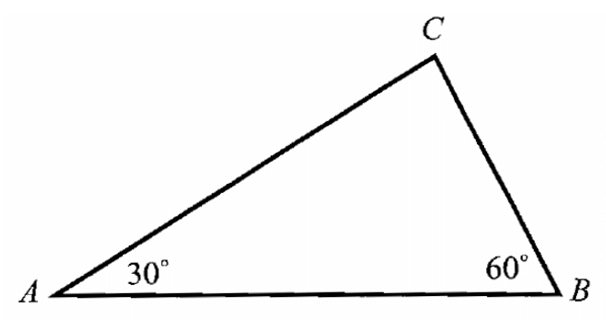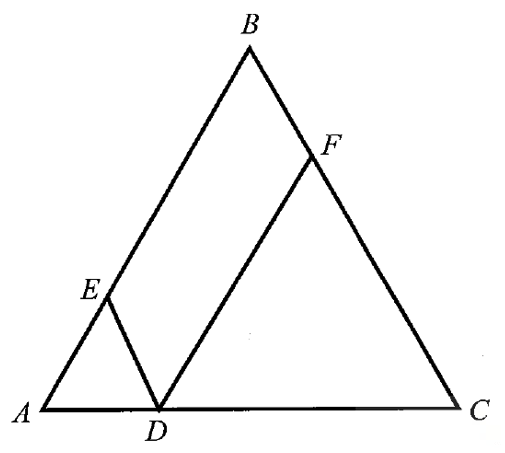PRACTICE PROBLESM ON INTEGRATION BY PARTS
Evaluate the following.
Problem 1 :
∫x ex dx
Solution :
u = x, du = dx
dv = ex dx and v = ex
∫udv = uv-∫vdu
= xex-∫exdx
= xex-ex+C
∫ xex dx = ex(x-1)+C
Problem 2 :
∫x sin x dx
Solution :
u = x, du = dx
dv = sinx dx and v = -cosx
∫udv = uv -∫vdu
= x(-cosx) -∫(-cosx)dx
= -xcosx +∫cosxdx
∫ x sin x dx = -xcosx + sinx + C
Problem 3 :
∫ x log x dx
Solution :
u = logx, du = (1/x) dx
dv = dx and v = x2/2
∫udv = uv-∫vdu
= log x(x2/2) - ∫(x2/2)⋅(1/x)dx
= log x(x2/2) - (1/2)∫xdx
= log x(x2/2) - (1/2)(x2/2) + C
∫ x log x dx = (x2/2)log x - (x2/4) + C
Problem 4 :
∫ xsec2x dx
Solution :
u = x, du = dx
dv = sec2x and v = tan x
∫udv = uv-∫vdu
= x(tan x) - ∫tan x dx
∫ xsec2x dx = x tanx - ln(secx) + C
Problem 5 :
∫ x tan-1 x dx
Solution :
u = tan-1 x, du = 1 / (1 + x2)dx
dv = x dx and v = x2/2
∫udv = uv-∫vdu
= tan-1 x (x2/2) - ∫x2/2 du
= tan-1 x (x2/2) - ∫1/(1+x2) (x2/2)dx
= tan-1 x (x2/2) - (1/2) ∫ x2/(1+x2) dx
Let us add and subtract 1 with the numerator.
= tan-1 x (x2/2) - (1/2) ∫ (x2 + 1 - 1) / (1+x2) dx
= tan-1 x (x2/2) - (1/2) ∫ (x2 + 1) / (1+x2) - (1 / (1+x2)) dx
= tan-1 x (x2/2) - (1/2) [∫ 1 dx - ∫ (1 / (1+x2)) dx]
∫ x tan-1 x dx = tan-1 x (x2/2) - (1/2) [x - tan-1 x] + C
Problem 6 :
∫ log x dx
Solution :
u = logx , du = 1/x
dv = dx and v = x
∫udv = uv-∫vdu
= logx(x) - ∫xdx
∫ log x dx = xlogx - (x2/2) + C
Problem 7 :
∫ x sin-1x dx
Solution :
u = sin-1x , du = 1/√(1-x2) dx
dv = dx and v = x
∫udv = uv-∫vdu
= xsin-1x-∫x (1/√(1-x2)) dx
= xsin-1x-∫ (x/√(1-x2)) dx ---(1)
Here we may use substitution method to find integration.
Let t = √(1-x2)
t2 = 1 - x2
2t dt = -2x dx
x dx = -t dt
Applying in (1), we get
= xsin-1x-∫ (1/t) (-t dt)
= xsin-1x + ∫ dt
= xsin-1x + t + C
Applying the value of t, we get
= xsin-1x + √(1-x2) + C
Problem 8 :
∫x sin2x dx
Solution :
sin2x = (1-cos2x)/2
∫x sin2x dx = ∫x (1-cos2x)/2 dx
= (1/2)[∫x(1-cos2x) dx]
= (1/2)[∫x dx - ∫x cos2x dx]
= (1/2)[(x2/2) - ∫x cos2x dx] ---(1)
Integrating x cos2x :
u = x and du = dx
dv = cos 2x and v = sin2x/2
∫udv = uv-∫vdu
= x(sin2x/2)-∫(sin2x/2) dx
= (x/2)sin2x-(1/2)∫sin2x dx
∫x cos2x dx = (x/2)sin2x+(1/4)cos 2x
Applying the integrated answer in (1), we get
= (1/2)(x2/2) - 1/2[(x/2)sin2x+(1/4)cos 2x] + C
= (x2/4) - (x/4)sin2x-(1/8)cos 2x + C
Problem 9 :
∫x sin 3x cos 2x dx
Solution :
∫x sin 3x cos 2x dx = ∫x (2/2)sin 3x cos 2x dx
= (1/2)∫x 2sin 3x cos 2x dx
= (1/2)∫x (sin 5x+sinx)dx
= (1/2) [∫x sin 5x dx +∫x sinx dx]
We have to use integration by parts two times.
|
∫x sin 5x dx : u = x, du = dx dv = sin 5x, v = -cos 5x/5 |
∫x sin x dx : u = x, du = dx dv = sin x, v = -cos x |
= (1/2) [x(-cos 5x/5) - ∫(-cos 5x/5) dx + x(-cos x) - ∫(-cos x) dx]
= (1/2) [x(-cos 5x/5) + (1/5)∫cos 5x - x cos x + ∫cos x dx]
= (1/2) [(-x/5)cos 5x + (1/5)(sin 5x/5) - x cos x + sin x + C
= (1/2) [(-x/5)cos 5x + (1/25)(sin 5x) - x cos x + sin x + C
Problem 10 :
∫x3 e^x2 dx
Solution :
∫x3 e^x2 dx = ∫x ⋅ x2 e^x2 dx
Let t = x2
dt = 2x dx
x dx = dt/2
= ∫tet (dt/2)
= (1/2) ∫ tet dt
Using the formula integrating by parts, we get
= (1/2) ∫ tet dt
= (1/2) [tet- ∫et dt]
= (1/2)et(t-1) + C
Applying the value of t, we get
= (1/2)ex^2(x2-1) + C
Problem 11 :
∫√x ln x dx
Solution :
∫√x ln x dx
u = ln x, du = 1/x dx
dv = √x, v = x^(3/2) / (3/2)
= (2/3) x^(3/2)
= (2/3) x √x
∫uv = uv - ∫v du
= ln x (2/3) x √x - ∫(2/3) x √x (1/x) dx
= ln x (2/3) x^(3/2) - (2/3)[x^(3/2)/(3/2)]
= ln x (2/3) x^(3/2) - (2/3)(2/3) x √x + C
= (2/3) x √x ln x - (4/9) x √x + C
Problem 12 :
∫x2 cos 3x dx
Solution :
∫x2 cos 3x dx
u = x2, du = 2x dx
dv = cos 3x, v = sin 3x/3
∫uv = uv - ∫v du
= x2(sin 3x/3) - ∫(sin 3x/3) 2x dx
= x2(sin 3x/3) - 2/3∫ x sin 3x dx
Using integration by parts again.
u = x, du = dx
dv = sin 3x, v = - cos 3x / 3
= x2(sin 3x/3) - 2/3[x (-cos 3x/3) - ∫ (-cos 3x/3) dx
= x2(sin 3x/3) + (2/9) (x cos 3x) - (2/9) ∫ cos 3x
= x2(sin 3x/3) + (2/9) (x cos 3x) - (2/27) sin 3x + C
Kindly mail your feedback to v4formath@gmail.com
We always appreciate your feedback.
©All rights reserved. onlinemath4all.com
Recent Articles
-
Derivative of Absolute Value of x Using Limit Definition
Apr 23, 25 11:11 AM
Derivative of Absolute Value of x Using Limit Definition -
Digital SAT Math Problems and Solutions (Part - 149)
Apr 23, 25 02:33 AM
Digital SAT Math Problems and Solutions (Part - 149) -
Digital SAT Math Problems and Solutions (Part - 148)
Apr 22, 25 08:20 AM
Digital SAT Math Problems and Solutions (Part - 148)

